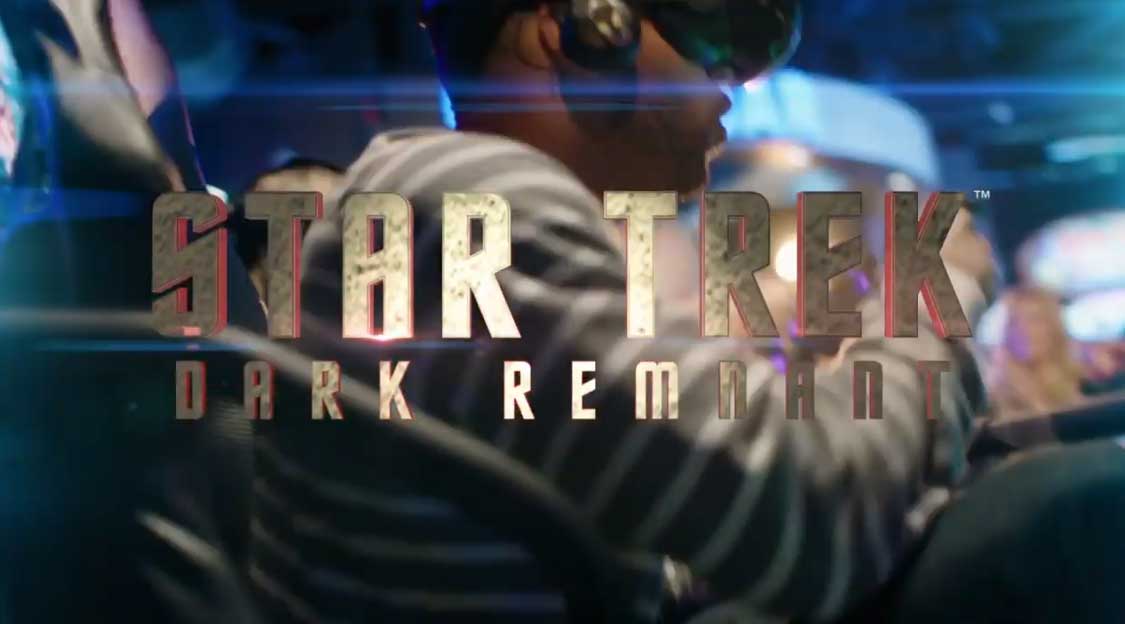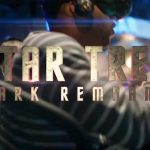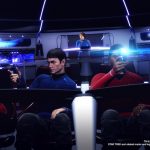With endless galaxies still left to explore, it’s no surprise that the ‘Star Trek’ universe is expanding even more. According to a report from The Wrap, CBS has launched an entirely new business division devoted to putting ‘Star Trek’ in the palm of your hand, via the creation of Star Trek Global Franchise Management, an in-house franchising group on a mission to branch out to podcasts, a new beefed-up website and other digital avenues. On the TV side, CBS now has five ‘Star Trek’ projects either in production or development, including ‘Discovery,’ the upcoming CBS All Access series starring Patrick Stewart as Jean-Luc Picard, the Star Trek: Discovery spinoff series based on Michelle Yeoh’s adventures as Capt. Philippa Georgiou, as well as a Nickelodeon cartoon series, the more adult-oriented ‘Lower Decks’ animated series in the works from Mike McMahan (‘Rick and Morty’) and the ongoing ‘Short Treks’ web series.
A project that Trek fans won’t have to wait for, the recently released ‘Star Trek: Dark Remnant’ VR experience by VRstudios in collaboration with Strange Reptile exclusively for Dave & Busters. ‘Star Trek: Dark Remnant’ follows the U.S.S. Enterprise, which is in deep trouble. During a routine evacuation of an advanced stellar research center in the middle of the Klingon Neutral Zone, the premature collapse of a neutron star has left the infamous vessel disabled and in danger. As the captain of Starfleet’s latest and most advanced ship, the U.S.S. Galileo, it’s up to you and your crew to protect the Enterprise from incoming star debris and an unknown Klingon threat.
There are many important factors that go into making these ‘Star Trek’ stories, no matter what medium, authentic to Gene Roddenberry’s original vision from the 1960s. One of those being the galactic score, which started with Alexander Courage’s famous theme that fans all know and love. A few of the other composers that have scored for the Trekverse include Jerry Goldsmith, James Horner, Leonard Rosenman and Michael Giacchino. A new addition to the family, Hexany Audio’s Matthew Carl Earl, who scored the aforementioned ‘Star Trek: Dark Remnant’ VR game. No matter the size of the Trek project, it’s always interesting to hear a new perspective on the franchise, so Earl exclusively discusses his recent work on ‘Star Trek: Dark Remnant.’
What was the most challenging part of scoring ‘Star Trek: Dark Remnant?’
Matthew Carl Earl (MCE): For me, the most challenging part was also the most fun. Taking the big, bombastic music style everyone knows and loves from the ‘Star Trek’ universe and fitting it into a more subdued, immersive VR setting. Additionally, writing for any IP as massive as ‘Star Trek’ can be a bit daunting, and making sure the music was up to the already establish quality bar was indeed also a huge challenge!
Musically, do you have a favorite ‘Star Trek’ project that you went back to for inspiration for this game?
MCE: I was really looking all over the franchise for style inspiration. I thought there was great music to draw from every era of ‘Star Trek.’ I mainly took the approach of using the ‘Star Trek’ 2009 Michael Giacchino themes, and trying to inject a bit of the classical orchestration approach of Jerry Goldsmith’s scores.
You were brought on by VRstudios for this project. What was your collaboration with them like on a day-to-day basis?
MCE: Our studio Hexany Audio has worked with VRstudios on a few different projects throughout the years, and their titles are always so much fun to work on. So, really our process is pretty smooth nowadays. I was given a lot of creative freedom on where to take the music. We just discussed some of the key points we wanted to hit in the musical direction early on, and then I went to work!
At what part of the process were you brought in? Were you scoring to stills or the already completed graphics?
MCE: I was brought in fairly early, though I didn’t write a note of music until I was able to actually play the game in VR and then bring back video captures to my writing desk. Also, with the nature of these kinds of experiences, timing changes can happen very often, so the later I start scoring to picture, the easier it is for me.
How do you feel you have modernized or updated the ‘Star Trek’ score for this game?
MCE: I didn’t really think about it as modernizing or updating the score. I was really just trying to stay within the bounds of the universe and adding more cool music to the already established ‘Star Trek’ sound. Though inevitably there will be each composer’s own take on what that sounds like, so naturally a bit of what I like to hear slipped in there.
In some of the gameplay footage that has been released by the creators, the player has a Klingon ship encounter. Did you give the Klingon’s their own theme? If so, how would you describe that?
MCE: Yes, actually there is that little chromatic three note motif during that encounter, though I thought of it as more of a motif for Captain Krantuk (commander of the Klingon ship that you confront). Though, I couldn’t try to focus on too many different themes in various places because of how short the experience is, so I figured it was more effective to reference Giacchino’s main theme throughout the piece.
How long did it take you to compose all the music for this game?
MCE: It’s actually a relatively small amount of music in the game, around nine minutes, give or take. So I probably spent around three or four days writing, spread out over about two weeks, to account for the additional endings that were being added, and to make changes to the score to account for timing changes and so on.




